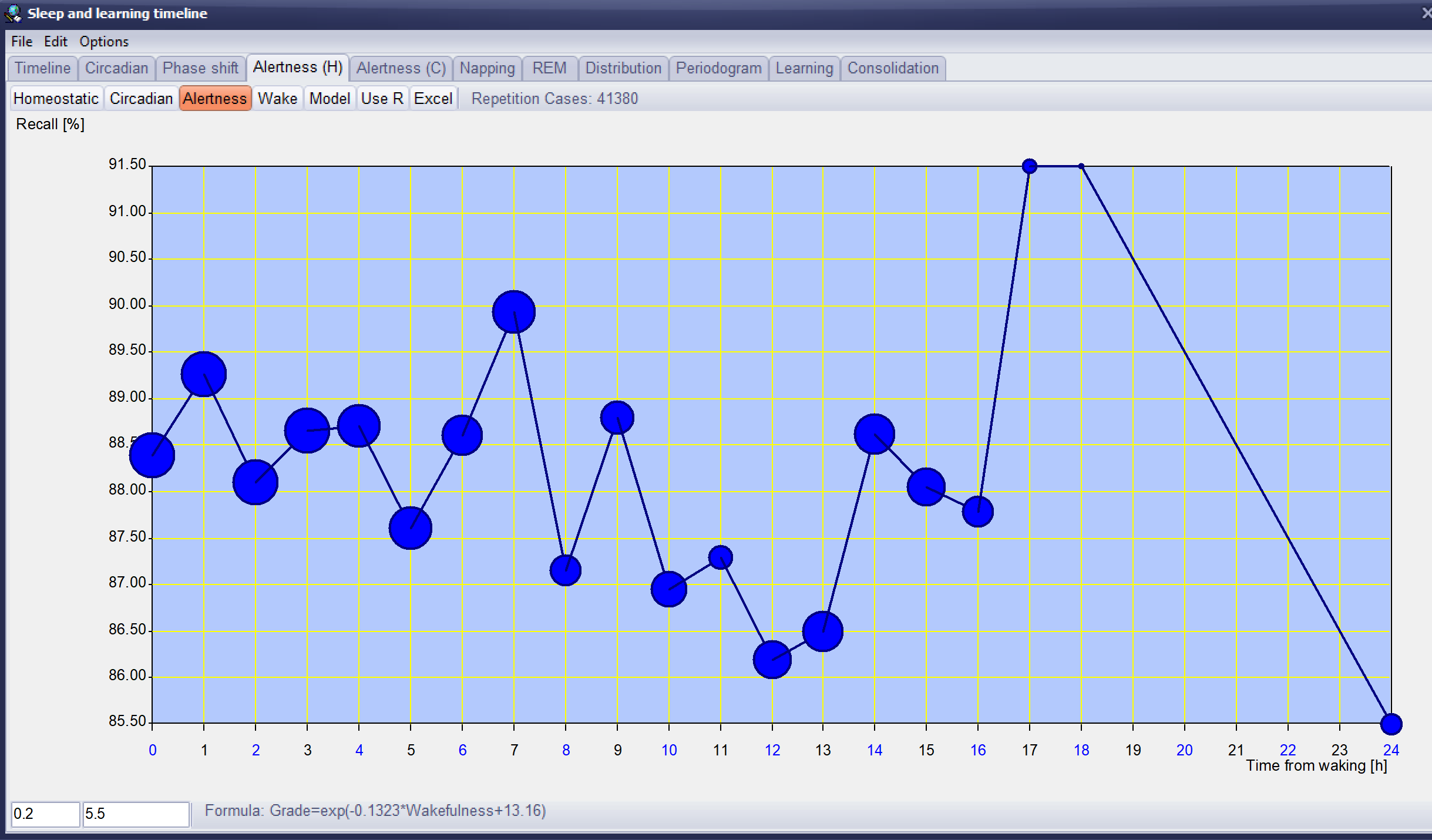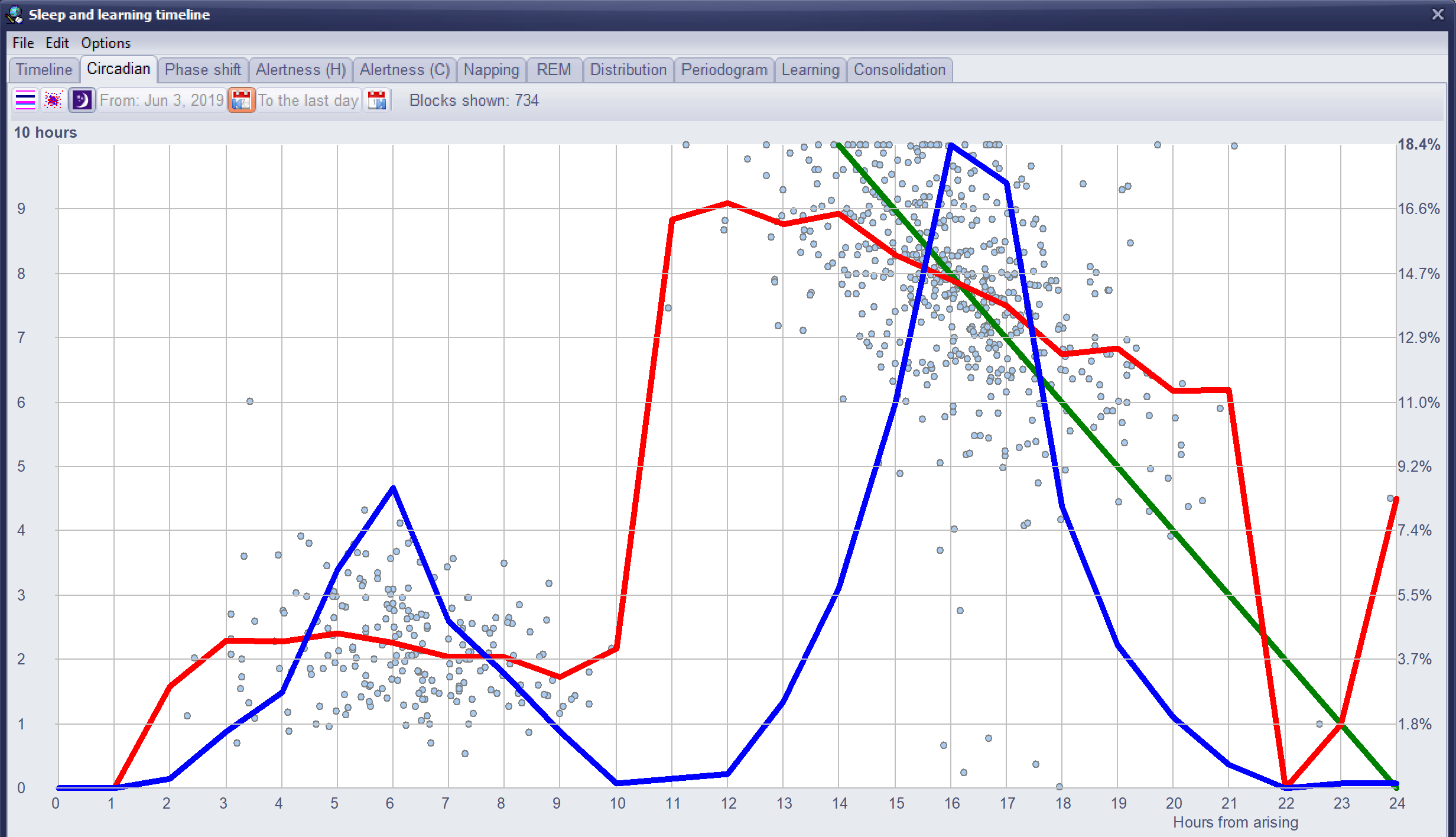4 Answers sorted by
160
The thing I've found most interesting by far to track is reaction time.
There's a lot of research showing that reaction time correlates with intelligence. Unfortunately, most of this is on the scale of individuals rather than individual-days; but that is of course in part because it's hard to give someone an intelligence test and a reaction-time test every day for a while, and (relatively) easy to just give someone an intelligence test and a reaction-time test just once
I track simple reaction time (how fast I can hit a button after a visual stimulus) and also recently began tracking choice-involved reaction time (how fast I can correctly indicate one of two alternatives for a small parity problem). Research shows the choice-involved reaction times seems to correlate better with intelligence.
Altogether the tests take < 5 minutes, it could be brought down to < 2 if you were ok with smaller sample sizes / smaller stimulus windows.
(Both improve for ~2 weeks as you start, but afterwards seem to even off pretty quickly.)
I've gotten interesting correlational results with nootropics, meditation, etc., while tracking this. I haven't been tracking my sleep quality, but it also frequently matches my perceived quality.
(I've also tried DNB. I'm less certain it's useful. Overall, I think this is a really interesting problem; mentally, I designated it as the Taravangain Problem, after the fictional king in the Stormlight Archive, cursed with variable intelligence day-over-day, who takes a test administered by trusted stewards every morning to determine what level of authority those stewards will grant him.)
60
For the general usecase of tracking cognitive performance during self tracking Quantified Self folks build http://www.quantified-mind.com/
Well, that was a short exploration. They require you to have a Google account and only work with Google Chrome. Thanks for the links anyway!
Thanks! I've set a reminder for myself to explore the website over the weekend. Looks like it will be extremely useful and I wish I had know about this resource long time ago.
50
Besides cognitive measures, measures of stress such as the lowest night time heart rate and heart rate variance are good metrics to track.
Thanks but that requires better model of how humans function than I have. It's not obvious to me how to interpret those metrics.
20
You might find some of the writings on supermemo.guru regarding sleep interesting.
SuperMemo is a spaced repetition app (it was the very first in fact) that has a thing called sleepchart built in. It lets you both track sleep for finding interesting patterns alongside getting altertness/cogniti8ve data from correlation of say hour of day vs. average grades:

There are a bunch of confounders (they could be eliminated were I more rigorous) but I think it's interesting and even without SRS data I get some useful data:

Basically red line is how long sleep episodes are, blue line is how frequent they are around that time. You can see there's a peak around 6 hours from waking and around 16/17 hours from waking. The green line shows breakeven (if I sleep at that time, for the amount of hours on the left, it'll add up to 24).
It's probably really complicated looking but if you want to try it let me know and i'm happy to show you how. Doesn't take long to learn and takes very little time to add track in a new sleep episode.
(this is from my own data)
I used to sleep very little (6 hours or so) and function well with extremely good academic achievement. Instead of sleeping 8 hours now, I would love those extra 2 hours each day again but I'm not sure it won't affect my cognitive ability in the short term. I don't trust my impressions and would love to have some quantitative data.
I'm not attempting to prevent long-term negative consequences since AFAICT nobody knows what those might be. Besides, there are significant changes in my lifestyle every month or so and so there would be too much noise in the data.